
Indiana CCA Legacy Award
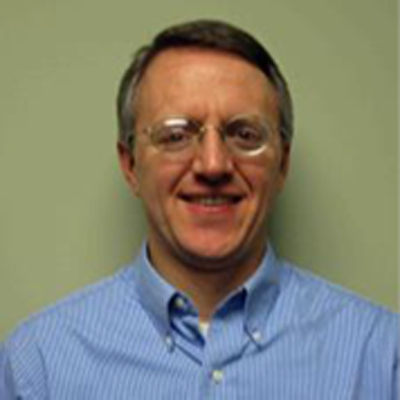
Tony Bailey
Tony Bailey is the State Conservation Agronomist for USDA’s Natural Resources Conservation Service (NRCS) in Indiana, where he has spent 37+ years at various offices. Areas of responsibility include nutrient & pest management planning, Comprehensive Nutrient Management Planning (CNMPs) on livestock farms, water quality and soil health. He also serves as the State Technical Service Provider (TSP) Coordinator. He has a B.S. in Agronomy from Purdue University and resides in West Lafayette with his wife – proudly, his 2 kids are also Purdue graduates.
Tony has been a CCA since 1995 and has been on the CCA Board most of the past 27 years either as a member or ex-officio member. During that time he has: approved Soil & Water CEUs; assisted with review and changes in Performance Objectives for the Tri-State Program; been a member of the CCA planning committee assisting with speakers, topics and agendas for many CCA Conferences; been a speaker at public and private meetings/workshops/field days and CCA Conferences for the ever tough to find Soil & Water CEUs; and was on the committee that developed the first National 4R Nutrient Management Specialty (4R NMS) Certification exam.
Traci Bultemeier
Traci has been a Certified Crop Advisor since 2001 and later a Certified Professional Agronomist. She was asked to put her name in the running for the Ohio CCA Board of Directors in 2003; going to on to serve as Chairman of the Board. In 2009 she relocated to northeast Indiana for Pioneer and to establish operations on the farm that she and her husband, Jamie, own. While serving on an international committee, she attended an Indiana CCA meeting to share updates and was soon serving Indiana agriculture as Chairman of the Indiana Board. In 2023 she retired from all Board activities after serving 3 years on the International CCA Executive Leadership team, in 2022 as Chairman.
In 20 years of serving production agriculture, she hopes that she has helped change the outlook for professionals in the industry and has helped to bring on excitement for learning in our next generation of producers. Her favorite committee work was on the exam committee and she feels that the teams she worked with, over the many years and many changes to the exam, were some of the best professional people practicing in agriculture.
She was honored to be chosen as one of the Women in Ag by the Ohio Nature Conservancy in 2022 to celebrate Women’s History month. She has also enjoyed speaking on several occasions to an Ohio founded group: Women for the Land.
Traci has been with Pioneer for 23 years and is currently a territory manager in Northeast Indiana. She farms with her husband and sons, Wyatt and Luke, southeast of Fort Wayne where they raise corn, soybeans, hay, Ready to Lay hens and Lincoln sheep. She was raised on a small farm in Holmes County, Ohio where FFA helped develop her love of agronomy. She holds a B.S and M.S. in agronomy from The Ohio State University.


Jeff Nagel
Jeff has served in the agricultural industry for 36 years and been a CCA for over 30 years. He graduated with a master’s degree in Soil Fertility from Purdue University in 1989. He started his career as an agronomist with the cooperative system, spent five years in various roles with American Cyanamid and returned to Indiana in 1996 to rejoin the cooperative system. He currently serves as a Senior Technical Agronomist for Keystone Cooperative.
Jeff has served in various roles for the Indiana CCA program. He is a past chair and has been on several committees. He continues to serve on the Indiana CCA program planning committee.
John Obermeyer
John first worked as an independent crop consultant, in central Illinois and in southwest Indiana, advising field crop producers on pest management needs. He joined Purdue in 1987 with the challenge of serving as liaison between the University's extension pest-disciplined specialists and Indiana's agricultural sector.
His activities at Purdue have consisted of in-field and classroom IPM training and co-authoring publications (guides, newsletter, apps, fact sheets, etc.) in field crop pest management. To further enhance IPM programs, he filmed and produced videos in field, forage, vegetable, fruit crops, and urban environments, including pesticide storage/pesticide safety for online courses. Field photography, specifically macro-photography, has become a passion with results used in a diverse number of printed and electronic formats. A database of over 17,000 of his digital insect, crop, and damage have been cataloged and preserved for future use.
IPM team efforts have included coordinating and/or serving on committees for the Purdue Diagnostic Training Center, Crop Management Workshops, Pest&Crop newsletter, Indiana Association of Professional Crop Consultants, and the Indiana Certified Crop Advisors. With Indiana CCA he served on the Board from its origins as well as CEU meeting approvals and Conference planning committees.
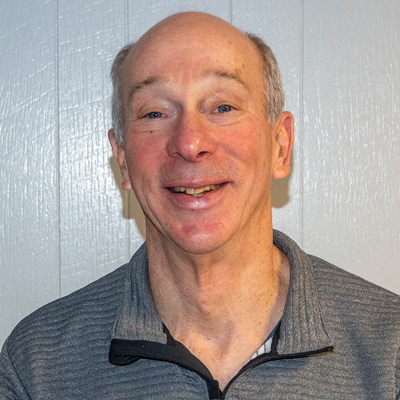
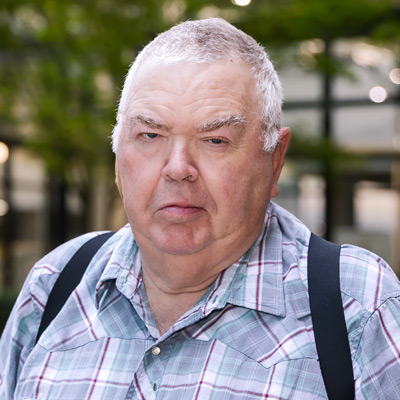
Tom Bechman
Tom J. Bechman has devoted his life to advancing agriculture through education, journalism, and community service. Raised on a 250-acre Indiana dairy farm, Tom's early farm experience shaped his passion for the industry. After earning a B.S. in Animal Science/ Ag Education and an M.S. in Dairy Science from Purdue University, he began his career teaching vocational agriculture. Since 1981, he has been with Indiana Prairie Farmer magazine, where he has held various editorial roles and now serves as the Midwest Crops Editor for Farm Progress.
Tom has been a tireless supporter of agricultural education and conservation, serving with organizations like the Indiana FFA Foundation, Johnson County SWCD, and as a 4-H club leader and soil judging coach. He co-led initiatives such as the Johnson County Farm Fest, connecting communities to farming. His efforts to support Certified Crop Advisers (CCA) include launching the Crops Corner column, delivering expert information to farmers, and highlighting CCA leaders through the magazine.
Tom's contributions have earned him numerous honors, including the Purdue Ag Alumni Certificate of Distinction and induction into the Indiana Livestock Breeders Hall of Fame. Supported by his wife Carla, their four children, and two grandchildren, Tom's legacy is one of dedication to innovation, education, and community in agriculture.
James Camberato
Dr. Camberato is an Extension soil fertility specialist in the Agronomy Department at Purdue University. In general his research and Extension programs center on soil fertility, fertilizers, and plant nutrition. Specific emphasis has been on determining appropriate rates of N fertilization for corn and evaluating tools for fine-tuning N recommendations.
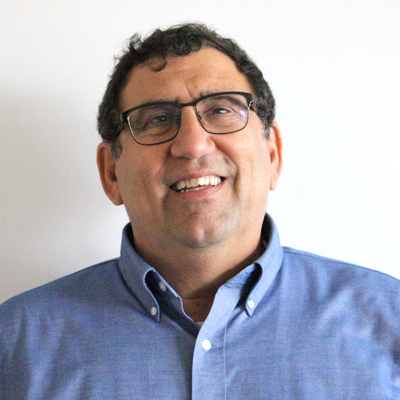
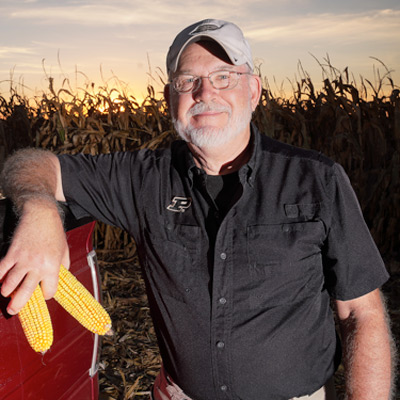
Robert Nielsen
Raised on a farm in eastern Nebraska, Bob earned a B.S. from the University of Nebraska and graduate degrees from the University of Minnesota. In 1982, he joined Purdue University's Agronomy faculty, focusing on applied field research, graduate training, and Extension programming centered on corn management. After 40 years of serving Indiana agriculture as Purdue's "Corn Guy," he retired on December 31, 2022.
Bob's Extension work emphasized improving yield, profitability, and sustainability in corn production across Indiana and the eastern Corn Belt. Over four decades, he shared his expertise with more than 720,000 farmers and advisors at over 2,000 programs nationwide and internationally, including Canada, Hungary, Argentina, and South Africa. In his final 15+ years, Bob's research explored optimal nitrogen management, seeding rates, starter and sulfur fertilizers, biological amendments, and UAV-based crop scouting.
A pioneer in web-based Extension communication, Bob launched the KingCorn website in the mid-1990s, featuring the Chat 'n Chew Cafe, which provided Midwest agronomic resources and event links. At its peak, KingCorn attracted 300,000-400,000 annual views before being succeeded by "The Kernel" in 2021. Many of his "Corny News" articles remain accessible via the Corny News Compendium.
Martin Park
Marty moved to northwest Indiana to work for Shell Chemical Company in the spring of 1986 after graduating from The Ohio State University. Shortly after, Shell sold their Crop Protection division to DuPont and Marty continued to work with retailers and farmers in northwest Indiana. In 1999, Dupont purchased Pioneer and Marty held several different roles including area agronomist for Pioneer in that integrated business. Marty continued to work with DuPont until the fall of 2013 when he started his own agronomic consulting business, M W Park Limited. M W Park Limited provides agronomic services for Gutwein Seed Services based in Rensselaer, Indiana. Gutwein Seed Services is a large seed dealer/distributor that sold the Specialty Hybrids brand for many years and is now selling the Channel brand.
Marty has been a CCA for over 30 years. He served on the CCA Board of Directors for multiple terms, as well as working on the planning committee for the conference for many years. He has frequently been a moderator at the conference and has served as a writer for the Crops Corner program many times.
Marty and his wife, Linda live outside Rensselaer and have two grown daughters.
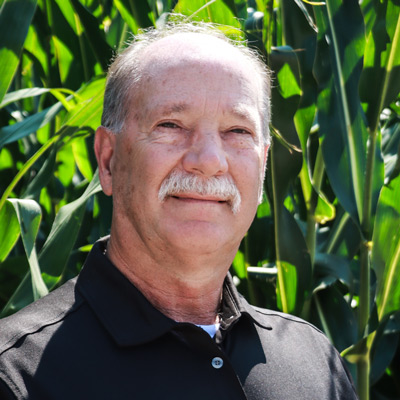
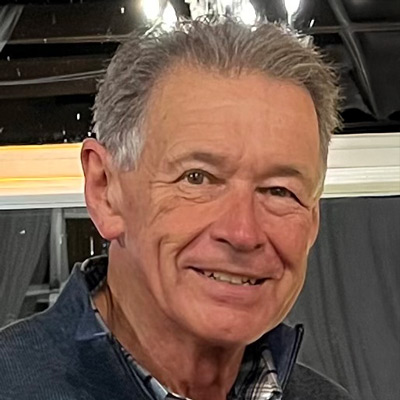
Darrell Shemwell
Darrell Shemwell grew up in western Kentucky on a small farm that cultivated grain, raised livestock, and produced tobacco. He graduated from Murray State University in 1978 with a Bachelor of Science in Agriculture. In 1979, he began his career in the agricultural industry with U.S. Steel Agri-Chemicals, a division of United States Steel Corporation, as a Salesman and Assistant Manager at the New Harmony, Indiana retail branch. Within two years, he advanced to the position of Branch Manager.
In 1987, Darrell took the position of Branch Agronomy Manager of Poseyville Plant Foods with Posey County Co-op and held that position until retiring in February 2023. Darrell continues to work part time for Posey County Co-op as a Consultant and Seed Salesperson.
Darrell was recognized as "Indiana CCA Of the Year" in 2007 and went on to serve on the Indiana CCA Board from 2008-2020.
He now resides in Poseyville, Indiana with his wife, Kathi, and continues to work with the growers in that area.
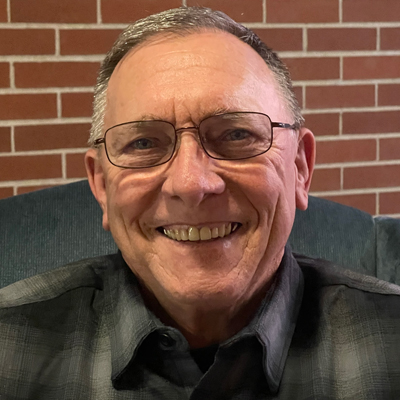
Bruce Reynolds
In 1982, Paul Buckmeier, John Sillings, and I formed the Indiana Association of Independent Crop Consultants. John and I worked IPM north of Indianapolis and Paul worked the south. We formed the Association because of what we saw as members of the National Association of Independent Crop Consultants. There was significant cooperation between crop consultants and University professionals in solving IPM problems. So, we started having the first Indiana CCA conferences (mostly meetings with Rich Edwards, Tom Turpin, and John Obermeyer from Purdue Entomology). The purpose of these meetings was to exchange ideas on Scouting methods and sampling, insect thresholds and economics, and public acceptance of IPM methodology. Paul, John, and I assisted Jim Vorst in the early stages of development of the first Indiana CCA state exam for certification. We were among the first consultants to take the exam and then served as a review board for the style of questions and areas of proficiency. Professionalism has always been the goal of the CCA program.
Quentin Rund
Agriculture lost a visionary. Quentin looked at agriculture differently; he didn’t look at it for what our industry was, but he saw what our industry could become. Quentin served the Indiana CCA as their administrator for 13 years. During that time Quentin had a lot of strong personalities to work with, which he always handled with grace, professionalism and a knowing grin. His strengths shined through in 2020 when Covid threatened every professional meeting everywhere. He negotiated countless contracts while he and his team had the technology expertise to pull it all together for the benefit of our CCAs and so many others across the country in the organizations that looked to him for guidance. Quentin had a broad scope of experiences and plentiful contacts worldwide; many of us never knew that because Quentin was not flashy nor a braggard. He was accomplished, unconventional, sincere and is greatly missed by so many.
Quentin was a dedicated family man. Raised on a central Illinois grain & livestock farm, the youngest of ten children, he made his home in the nearby town of Monticello, Illinois. Quentin received his undergraduate degree from the University of Illinois in Agricultural Communications and a master’s degree from Eastern Illinois University in Technology Education.
After serving a two-year Peace Corps tour in Tunisia he returned to central Illinois and married his loving wife of 31 years. She and their 4 cherished daughters and grandchildren were his greatest joy. He was a person of strong faith, high integrity, and a strong and independent work ethic.
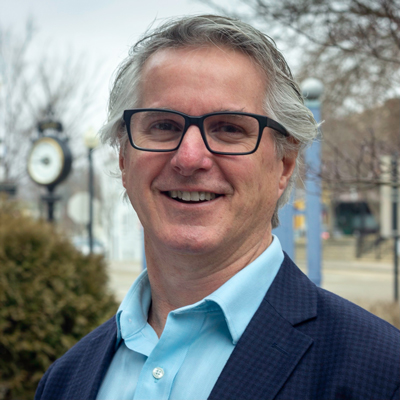
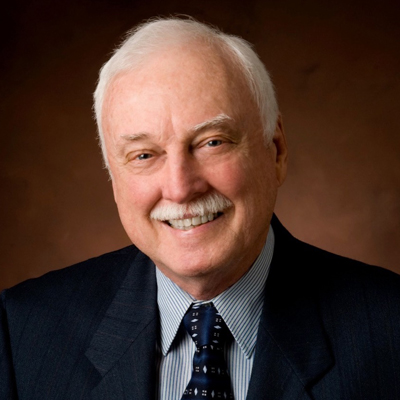
Jim Vorst
Dr. James Vorst was one of the founding fathers of the International Certified Crop Adviser program, and also worked closely with the Indiana, Ohio, and Illinois programs. He was a part of the first discussions in 1991 about developing a certification category for agricultural practitioners that did not require a college degree. Soon thereafter the American Society of Agronomy voted to establish CCA, and he led development of the learning objectives, protocols, and the first exams offered in 1993. His CCA work continued past his retirement in 2010.
Vorst’s combination of agricultural knowledge and education principles helped to assure the program had solid foundations. From the start, he organized teams of subject matter experts as well as practitioners in the field to ensure the program met the needs of the end users. He engaged with testing organizations such as SAT and ACT to ensure the outcomes were measurable and the tests valid, and used reading specialists to keep materials at the appropriate level for the audience. He asserted the emphasis should be on learning, not just passing a test. CCA is now the largest, most recognized agriculturally-oriented certification program in North America, with nearly 13,000 members.
Vorst grew up on a farm in Putnam County, Ohio. He received his B.S. in Ag Engineering and M.S. in Agronomy/Turf from Ohio State University, and his Ph.D. from the University of Nebraska. Dr. Vorst was on the Purdue faculty from 1969 to 2010, where he taught courses in grain crops, crop ecology, and agricultural ethics, was an adviser for the Agronomy Club and hundreds of students, and directed graduate student research in crop production. He received numerous national and university awards and was honored as Fellow by both the American Society of Agronomy and the Crop Science Society.
Tony Vyn
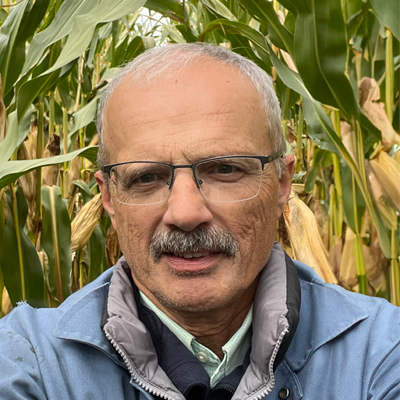
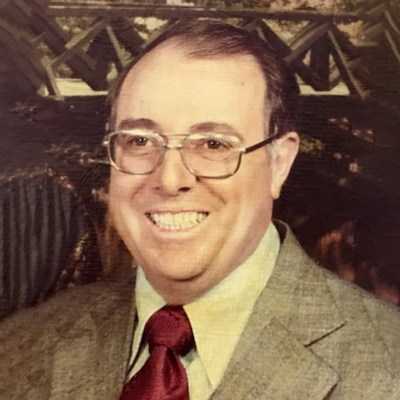
Bob Wyatt
Bob is a NE Missouri farm boy. After serving in the Army and graduating from the University of Missouri with an Agronomy Degree, he spent his career in the retail fertilizer business. In the late 80’s he and other industry people saw the need for a standard of agronomic proficiency to validate the agricultural profession. Education on a continuing basis would be necessary to underpin this certification.
Modeling after this same concept developed in Nebraska, several individuals, including Bob contributed thought and effort to the creation of Indiana’s CCA program.
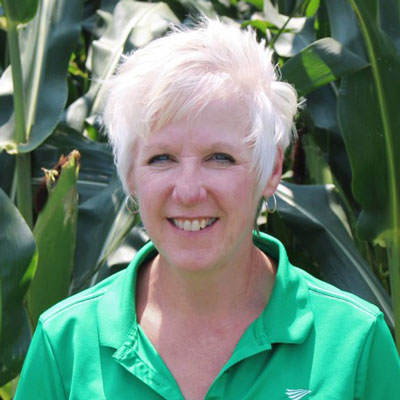
Betsy Bower
Certified Crop Advisor
Ceres Solutions Cooperative
Betsy Bower is a trusted agronomic voice in the Indiana agriculture community for nearly 30 years. Her areas of expertise include working with no-till and reduced till customers improving their cropping system regarding nutrient and irrigation management and crop protection. Betsy brings a degree in agronomy from Purdue University and a master’s degree in agronomy from the University of Nebraska. She resides with her family in Tippecanoe County, Indiana, and travels the southwest Ceres Solutions trade area in her work serving local farmers.
Steve Dlugosz

Lance Murrell

Kim Polizotto
Agricultural Consultant & Crop Production Expert
KRP Agronomic Consulting, Inc.
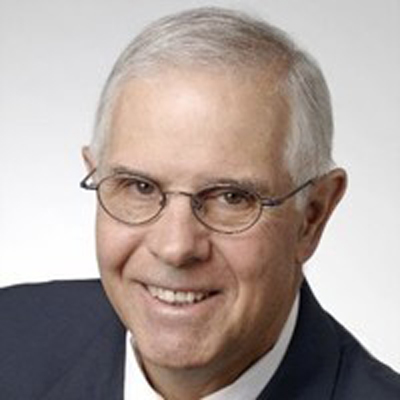
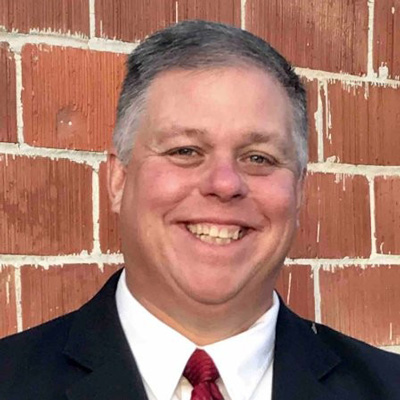
Chris Voglewede
Retired
Chris Voglewede was born and raised in Decatur, IN. He earned a BS degree in Plant Protection and MS and Ph.D. degrees in Field Crop Entomology from Purdue University. Chris joined American Cyanamid Company in 1993 and had several roles as Senior Technical Service Rep, Regional Customer Agronomist, and Sales Rep. Chris joined Dow AgroSciences in 2000 as a Global Tech Transfer Leader for the Urban Pest Management business. He moved to the Supply R&D function in 2006 to lead the Product Delivery and Support Team that included the Formulation Development Lab, Global Sample Shipping, Greenhouse Biology Team, and the Bulk Handling Team. In 2010, Chris was named Global Leader for the newly formed Insect/Nematode/Disease Management/Seed Treatment Technology Center in Crop Protection R&D. He then moved to Calgary, Canada to assume an R&D Business Partner role that included leadership responsibilities in Crop Protection, Seeds/Traits and Regulatory. On his return to the U.S. in 2013, he was named Global Product Development Leader for the Corn and Soybean Herbicides/Nitrapyrin Global Business Team. In 2015, Chris assumed Crop Protection Field Science Leader for North and Latin America. He was promoted to Sr. R&D Director Leading the Global Crop Protection Center of Expertise for Corteva in 2017. After 27 years in the industry, Chris retired in 2019.
Over his career, Chris was active in presenting in multi-disciplinary professional scientific organizations including Entomological Society of America, Weed Science Society of America, Canadian Weed Science Society, and American Chemical Society. Chris was active in the Indiana CCA serving as Ag Chem Industry Representative, Pest Management Tri-State Exam review committee, was INCCA Board Chairman 2000-2004, and later served as an ex-officio member.
In 2017, Chris was awarded Distinguished Purdue Ag Alumni Award in recognition of outstanding accomplishments and significant contributions to his profession and to agriculture. Chris is inventor/co-inventor on over 12 U.S. patents and has a special interest in innovation characterization, intellectual property protection and development/commercialization of new technology solutions.
Chris and his wife Paula have 6 children, 4 of whom are proud Boilermakers!
